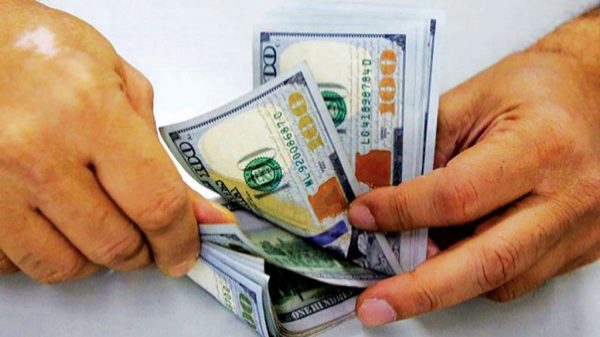ACC recommendations go unheeded

Shawdesh desk:
Corruption and irregularities in education and health sectors go unabated as the recommendations made by the Anti-Corruption Commission are yet to be implemented in five to six years.
The commission submitted two investigation reports to the education and health ministries identifying sources of corruption along with sets of recommendations on prevention of corruption in the sectors.
Commission secretary Md Mahbub Hossain said, ‘The commission has submitted the reports identifying the sources of corruption and detailing recommendations for combating corruption in the sectors but now it is the responsibility of the authorities concerned to implement the recommendations.’
Had steps been taken following the recommendations, corruption and irregularities in the sectors could have been curbed, he said.
In December 2017, the commission submitted a report identifying 12 sources of corruption in the education sector along with 39 recommendations on prevention of the corruptions.
The report identified question leak, note or guide books, coaching business, building infrastructure of educational institutions, MPO enlistment, appointment and transfer, establishment of new schools, colleges or madrasahs as the major sources of corruption.
The commission also identified the education boards, the Bangladesh Government Press and exam centres as sources of question leak in public examinations.
To prevent corruption in listing educational institutions for monthly payment order system, the commission recommended measures to fill up vacant posts through the Non-Government Teachers’ Registration and Certification Authority every year and formation of a commission like the Public Service Commission to appoint teachers.
The commission also made recommendations identifying the National Curriculum and Textbook Board, the Education Engineering Department and the education ministry as sources of corruption.
After four years of the submission of the recommendations, the Transparency International Bangladesh in September 2021 published a study report that found various corruptions in the education sector.
The TIB report said that applicants to secondary MPO-listed institutions needed to pay Tk3.50–15 lakh to be headmaster and assistant headmaster.
A candidate selected by the NTRCA has to pay Tk 50,000 to Tk 2 lakh to the headmaster and governing body members to ensure appointment.
The report also said that aspirants to the post of an assistant librarian must provide Tk 2–5 lakh to the headmaster and governing body members.
A teacher must pay Tk 50,000 to Tk 1 lakh to officials and employees of the Directorate of Secondary and Higher Education to be enlisted as a teacher at an MPO-listed institution, found the study.
Directorate of Inspection and Audit officials compel the teachers to bribe them a sum equivalent to one month’s salary when they go for inspection of any institution, the report said.
The report said that teachers had to pay Tk 1–2 lakh to DSHE officials if they wanted a transfer while the founders had to give Tk 1–5 lakh to brokers and board officials to get permission for a new institution.
Deputy minister for education Mohibul Hassan Chowdhoury Nawfel said, ‘The ministry took various steps after holding meetings following the ACC recommendations to prevent corruption in the education sector.’
He said, ‘We are implanting some recommendations, but some recommendations regarding the department of inspection and managing committee of educational institutions cannot be implemented as these are linked to the amendment of laws.’
Allegations also have it that a gang grew centring the posting and transfer of teachers but it has not come in the ACC report and the ministry also working on this, Nawfel said.
‘There is a major challenge that if any teacher or official commits an offence, we cannot take action immediately despite having evidence due to the lengthy process for punishment under the existing system,’ he said.
‘In absence of punishment due to lengthy process, the offenders are encouraged to repeat the offence which is a big problem to check the graft,’ he added.
The commission in January 2019 submitted another investigation report to the health ministry, identifying 11 sources of corruption in the health sector and gave 25 recommendations.
The commission investigation identified sources of corruption in recruitment, transfer and promotion in absence of specific policy.
The officials and employees of various government hospitals and clinics have created organised gangs comprising local brokers, due to long stays at the same workplace and they are taking additional money from the patients, the report said.
There are scopes of embezzlement of money due to the absence of experts in purchase committees of the Directorate General of Health Services across the country, the report said.
It said that there were corruptions in the purchase of medicines, medical equipment and other products due to lack of proper supervision.
The report also said that many unnecessary machines and equipment were purchased for various institutions to embezzle public money while money also embezzled showing the supply and repair of equipment at some hospitals.
Various hospitals at upazila level were provided with medical equipment without employing skilled manpower to operate those and the equipment got damaged due to they were not used for long.
The organised rings of brokers in government hospitals are luring helpless poor patients to private hospitals.
Even if the prescribed medicines are available at the hospitals, those are not given to the patients. These medicines are illegally sold in the market.
A group of influential people is setting up diagnostic centers in collaboration with the civil surgeon’s office without necessary equipment and doctors and staff, in exchange of money, are sending patients the diagnostic centers for unnecessary tests.
The commission recommended measures to curb corruption. The recommendations include showing citizen charter, including of members from specialised organisations in receiving health accessories, following e-government procurement tender process for purchase, holding inquiry before giving approval of setting up diagnostic centres and private hospitals, formulating policy for recruitment, making compulsory to write generic number instead of medicine name in the prescription, and increasing internship period to two years from one.
The massive allegations of corruption found over the health sector during the peak time of Covid pandemic in the country.
A Transparency International Bangladesh study report released in November 2020 found massive corruption in purchases of medical supplies and distribution of relief materials following the Covid outbreak.
‘On the pretext of the coronavirus emergency, the procuring entity, in this case the DGHS used the direct procurement method in various projects violating the Public Procurement Rules 2008 and in many cases it made purchases through verbal orders,’ said the TIB report.
‘A few syndicates were controlling all procurements in the health sector — allegedly involving some officials of the health ministry, DGHS, Central Medical Storage Depot, Anti-Corruption Commission, and some senior officials of different hospitals,’ the corruption watchdog said.
The procurement was manually processed instead of using the e-GP system while the procuring entity used the direct tender method instead of the open one on the pretext of the Covid crisis.
Asked whether the health ministry takes any step for the implementation of the ACC recommendations, Health Services Division additional secretary Md Saidur Rahman said that he had no idea about the ACC recommendations.
The commission in 2008 started working to find out corruption of government offices through carrying out investigations by its own teams to curb the corruption.
The commission has already submitted investigation reports along with recommendations on 15 government offices and organisations.
Like the education and health sector, there is hardy nay significant progress in the implantation of the ACC recommendations in other sectors too which is discouraging the ACC for next investigation, said an ACC official.























Leave a Reply